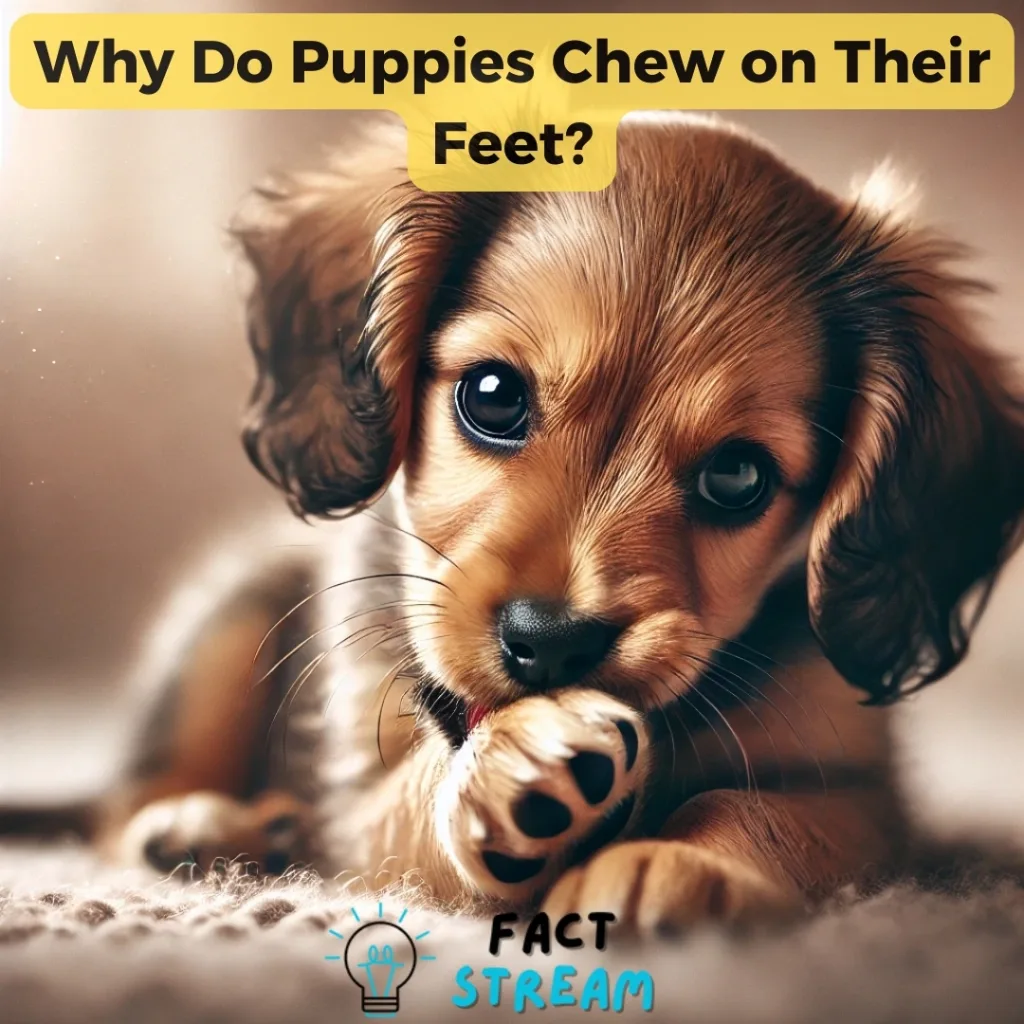Why Do Puppies Chew on Their Feet? A Guide for Worried Pet Parents
It’s normal for puppies to lick their paws every now and then. But what if they won’t stop chewing? It can be really worrying for a pet parent! Don’t panic. There are many reasons why puppies chew their paws. Let’s break them down:
Could Be Allergies!
Just like us, puppies can have allergies. Their bodies react to things they touch, eat, or breathe. These allergies can make their paws itchy.
- Food Allergies: These happen when something in their food upsets their stomach. It’s their way of saying, “This food is making me itch!”
- Things in the Air (Environmental Allergies): Pollen, dust, mold, grass—all these things in the air can make a puppy’s paws itchy! It’s like having an invisible itch they can’t scratch.
Finding out what your puppy is allergic to can be like solving a mystery. Your vet can help you. They might suggest changing your puppy’s food or doing tests. Once you know what’s causing the allergy, you can help your puppy avoid it!
Tiny Bugs Can Be a Big Problem!
Tiny bugs called fleas, ticks, and mites can live on puppies and cause itchy bites! Your puppy might chew their paws to try and stop the itching.
- Check for Fleas: Look for tiny brown bugs on your puppy’s fur. They might also leave behind little black specks called “flea dirt.”
- Ticks Like to Hide: Check carefully between your puppy’s toes, under their legs, and behind their ears for ticks. Ticks look like tiny brown bumps.
If you find fleas or ticks, talk to your vet about the best way to get rid of them. There are special medicines that can help.
Ouch, That Hurts!
Puppies explore the world with their paws. They can easily step on something sharp or get a little cut. This can make them chew their paws to try and make the pain go away.
- Check Their Paws: Look for anything stuck in their paw pads, like a small rock, thorn, or piece of glass.
- Grass Seeds Are Sneaky: They can get stuck in a puppy’s paw and cause a lot of irritation.
If you find something stuck, you might be able to gently remove it. If you’re not sure, or if your puppy’s paw is bleeding or looks infected, take them to the vet.
Could It Be an Infection?
Sometimes, bacteria or yeast (a type of fungus) can infect a puppy’s paws. This can make their paws red, swollen, and itchy.
- Yeast Infections: They often have a cheesy smell.
- Bacterial Infections: Can cause smelly paws.
Infections need to be treated by a vet. They might prescribe special washes, creams, or even medicine to help your puppy feel better.
Other Reasons for Paw Chewing
- Anxiety and Stress: When puppies feel scared, stressed, or bored, they might chew their paws to calm down. It’s like their way of dealing with their feelings.
- Pain in Other Places: Sometimes, puppies chew their paws because they have pain somewhere else in their body, like a sore muscle or a joint problem.
- Dry Skin: If your puppy’s paws are dry and cracked, it can make them itchy.
When to Call the Vet?
It’s always a good idea to talk to your vet if you’re worried about your puppy’s paw chewing. Here are some signs that you should definitely call the vet:
- Constant Chewing: If your puppy chews their paws all the time and doesn’t seem to be getting any better.
- Red, Sore, or Bleeding Paws: This could be a sign of an infection or injury.
- Losing Fur: Excessive chewing can make a puppy’s paws lose fur.
- Acting Different: If your puppy seems sad, tired, or not like their usual self.
- Limping: Could mean a paw injury.
How to Help Your Puppy?
- Clean Paws: Wash their paws after walks, especially if they’ve been in grassy areas.
- Give Them Safe Things to Chew: Lots of fun toys and chew treats can help keep them entertained and away from their paws.
- Playtime and Exercise: A tired puppy is less likely to chew!
- Paw Balm: Ask your vet about using a paw balm to soothe dry, cracked paws.
Remember, you know your puppy best! If you’re concerned, always trust your instincts and talk to your vet. They can help you figure out what’s going on and make sure your puppy’s paws are healthy and happy.


